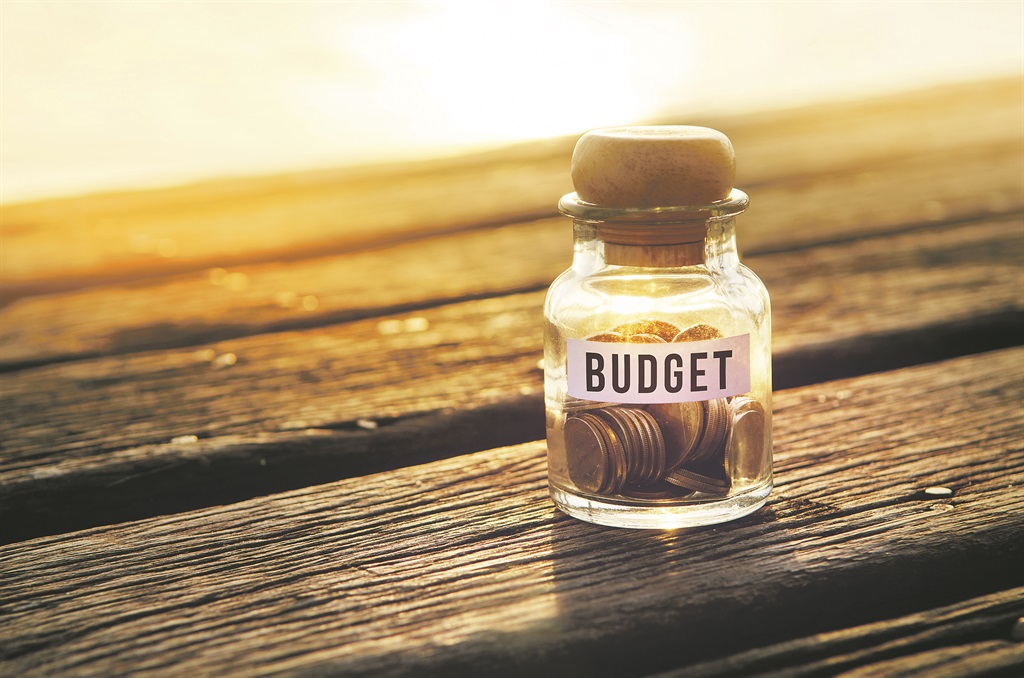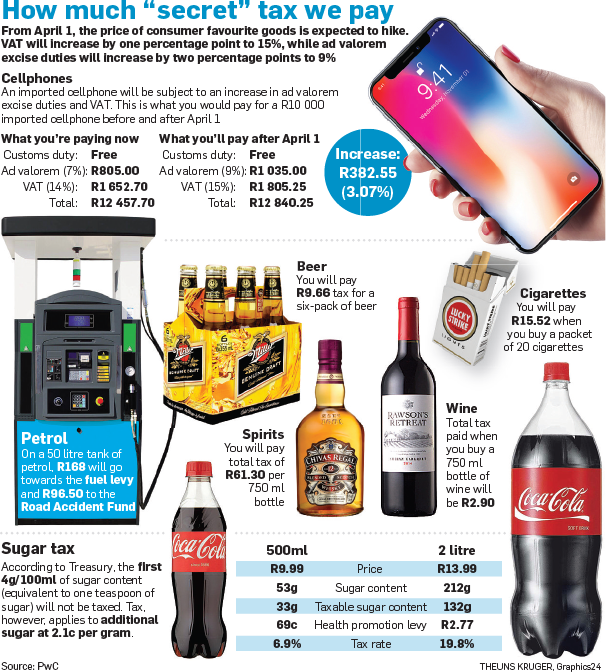
Finance Minister Malusi Gigaba had to juggle a tough budget.
In previous years, personal income tax has been hiked for the rich, but hikes such as the 14% to 15% in VAT and the 52c/litre increase in the fuel levy announced in the 2018 budget are likely to affect most people.
But there are individuals who will reap some benefits too.
Angelique Ruzicka looks at five personas from various backgrounds and income streams, and evaluates how the budget changes will affect them.
1. Josephine Sigwela, a grandparent, aged 76, living in Khayalitsha in Cape Town:
She’s been living off the state’s old age grant since she retired at age 65.
She is married to Thabo Sigwela, and supports her grandchild, aged 10.
She likes drinking Coca-Cola, while Thabo enjoys malt beer.
Budget benefits: Josephine and her husband are two of the millions of South Africans living on social grants.
This year the government is increasing social grants at a higher rate than before to compensate for the increase in VAT.
#BudgetSpeech2018 Overall, government will spend R792 billion on basic education, R668 billion on health and R528 billion on social grants pic.twitter.com/92pD0Kx6EU
— City Press Online (@City_Press) February 21, 2018
Josephine and Thabo will see a R95 a month increase in the old age grant in 2018/19, to R1 695.
As she’s supporting her grandchild, she’ll see an increase in her child support grant from R380 to R405 on April 1.
Budget pitfalls: A hike in VAT will undoubtedly affect Josephine and her family.
However, they can still benefit from the zero-rating of paraffin and VAT exemptions on basic food items such as dried beans, samp, mealie meal and rice.
She will, however, be paying more for Coke as there will be a health promotion levy on sugary drinks from April 1.
Meanwhile, Thabo will pay 15c more per 340ml can of malt beer.
2. Max Rawson is a high-income earner, aged 48, and lives in Sandton, Johannesburg:
Max will inherit his father’s R50 million fortune.
He has a top medical scheme, intends to buy a new Porsche Cayenne, smokes cigarettes and enjoys expensive whiskey.
He’s also keen to buy a holiday home from a property developer.
His wife, Tiffany, is a stay-at-home mum who likes to go shopping for luxury items, but she’s not environmentally conscious as she buys plastic bags.
They have two children.
Budget benefits: In spite of speculation, there was no additional wealth tax, land tax or annual net wealth tax introduced this year, so Max is in the clear here.
As a medical scheme member, he will still benefit from medical tax credits.
However, this will increase from R303 per month to R310 per month for the first two beneficiaries (Max and his wife) and from R204 to R209 per month for remaining beneficiaries (their two children).
“This year they have increased the medical tax credit but it’s less than inflation and the reason for that is that they need funding for National Health Insurance,” says Carla Rossouw, tax manager at Allan Gray.
Budget pitfalls: In this budget, they’ve found other ways to tax the rich.
As Max stands to inherit from an estate that has over R30 million in assets, he will now be taxed at a rate of 25%, up from 20%.
Government will increase the top rate of ad valorem excise duties on luxury goods to 7% and 9% (up from 5% and 7%) so Tiffany will have to curb her spending on luxury goods if she wants to save.
As a motorist, he’ll be subject to paying a motor vehicle emissions tax, and an increase to the fuel levy, which comprises an increase of 22c/litre for general fuel and 30c/litre more on the Road Accident Fund levy, all from April 4.
VAT will have an impact on his property purchase.
“Property bought from a developer is usually a VAT transaction, which means that VAT is paid instead of transfer duty,” explains Marius Brandow, property expert at Breedezicht Estate.
Unless she becomes eco-friendly, Tiffany will be paying more for her shopping bags, as the plastic bag levy will be increased by 50% to 12c a bag from April 1.
She’ll be paying more for her sparkling wine too – 73c more per 750ml bottle. She won’t benefit from zero-rated tax on her choice of bread as low GI is not included.
3. Noxolo Silwana is a 19-year-old student attending the University of Cape Town (UCT):
She comes from a household that earns a combined salary of R320 000 a year.
She takes a taxi to UCT, likes drinking cider and smoking.
Budget benefits: In December 2017, former president Jacob Zuma announced free higher education and training for students from families whose income is less than R350 000 a year, so Noxolo qualifies for this.
Through the National Student Financial Aid Scheme (Nsfas) she will get a bursary which will cover the full cost of study including tuition, study material, subsidised meals, accommodation and/or a travel allowance.
#BudgetSpeech2018 All new first-year students with a family income below R350 000 per annum at universities and TVET colleges will be funded for the full cost of study pic.twitter.com/AliE5kHZps
— City Press Online (@City_Press) February 21, 2018
Budget pitfalls: As Noxolo will be taking a taxi, her fares will increase due to a hike in the fuel levy.
But because she’s not in university residence, her travel allowance from Nsfas should cover most of her taxi fares to and from varsity.
Her penchant for cider will see her pay 15c more for a 340ml can of cider and, as a smoker, she’ll pay an extra R1.22 per packet of 20.




 Publications
Publications
 Partners
Partners









